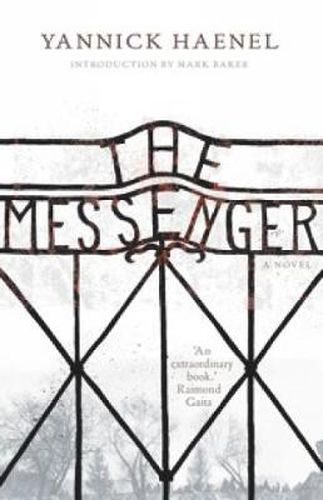Readings Newsletter
Become a Readings Member to make your shopping experience even easier.
Sign in or sign up for free!
You’re not far away from qualifying for FREE standard shipping within Australia
You’ve qualified for FREE standard shipping within Australia
The cart is loading…






Jan Karski, a young Polish diplomat turned cavalry officer, joined the Polish underground movement after escaping from a Soviet detention camp in 1939. He served as a courier for the underground, ferrying messages between occupied Poland and the exiled Polish leaders, before he was captured and brutally tortured by the Gestapo.
Escaping from the Germans, Jan Karski was charged with the mission of his lifetime- to convey a message to the Allies about Hitler’s program to exterminate the Jews of Europe. He visited Warsaw’s Jewish Ghetto so that he could relate the truth about inhuman conditions first hand when he met, soon after, with leaders and top officials in London and President Roosevelt in Washington.
He had the ears of the decision-makers, yet nothing was done to prevent the ultimate fate of millions of Jews.
Published to immense acclaim in France, under the title Jan Karski, The Messenger is a compelling and tragic story. An extraordinary novelised biography about a man’s moral courage and our collective humanity, with parallels to Thomas Keneally’s Schindler’s Ark and WG Sebald’s Austerliz.
$9.00 standard shipping within Australia
FREE standard shipping within Australia for orders over $100.00
Express & International shipping calculated at checkout
Stock availability can be subject to change without notice. We recommend calling the shop or contacting our online team to check availability of low stock items. Please see our Shopping Online page for more details.
Jan Karski, a young Polish diplomat turned cavalry officer, joined the Polish underground movement after escaping from a Soviet detention camp in 1939. He served as a courier for the underground, ferrying messages between occupied Poland and the exiled Polish leaders, before he was captured and brutally tortured by the Gestapo.
Escaping from the Germans, Jan Karski was charged with the mission of his lifetime- to convey a message to the Allies about Hitler’s program to exterminate the Jews of Europe. He visited Warsaw’s Jewish Ghetto so that he could relate the truth about inhuman conditions first hand when he met, soon after, with leaders and top officials in London and President Roosevelt in Washington.
He had the ears of the decision-makers, yet nothing was done to prevent the ultimate fate of millions of Jews.
Published to immense acclaim in France, under the title Jan Karski, The Messenger is a compelling and tragic story. An extraordinary novelised biography about a man’s moral courage and our collective humanity, with parallels to Thomas Keneally’s Schindler’s Ark and WG Sebald’s Austerliz.
In The Messenger, Yannick Haenel crosses the boundary between non-fiction and fiction while shining new light on the extermination of the European Jews by the Nazis, and challenging any notion of humanity we may hold onto.
The book tells the incredible story of Jan Karski, a courier for the Polish Underground, who escaped Europe in 1942 to travel to London and Washington to deliver the message entrusted to him by two Warsaw Jews – ‘Perhaps to shake the conscious of the world!’ – of the systematic extermination of the European Jews. After delivering his message to British political leaders, to the United Nations War Crimes Commission, and directly to President Roosevelt in Washington, he realised that ‘no one cared enough’ to stop the slaughter. Karski lived with the knowledge that his message was never understood for the rest of his life.
Told in three sections, Haenel’s book is a compelling way of telling history. The first section is Haenel’s re-telling of a filmed interview with Karski for a now-famous film, Shoah, made by Claude Lanzmann in the 1980s. The second part is a description of Karski’s own book, published in 1944 in America as Story of a Secret State, detailing his life as a courier and his journey to London and America. The third section is where Haenel imagines Karski’s inner dialogue as a much older man. ‘Not for a single day in my life have I managed to think of anything other than the message from the Warsaw ghetto’, says Karski/Haenel – and after reading the two earlier sections, we know this to be true.
Haenel has, by re-imagining Karski’s message for the twenty-first century, created a powerful and provocative meditation on evil and humanity. Would we hear Karski’s message today? Do we understand his message? Do we act?